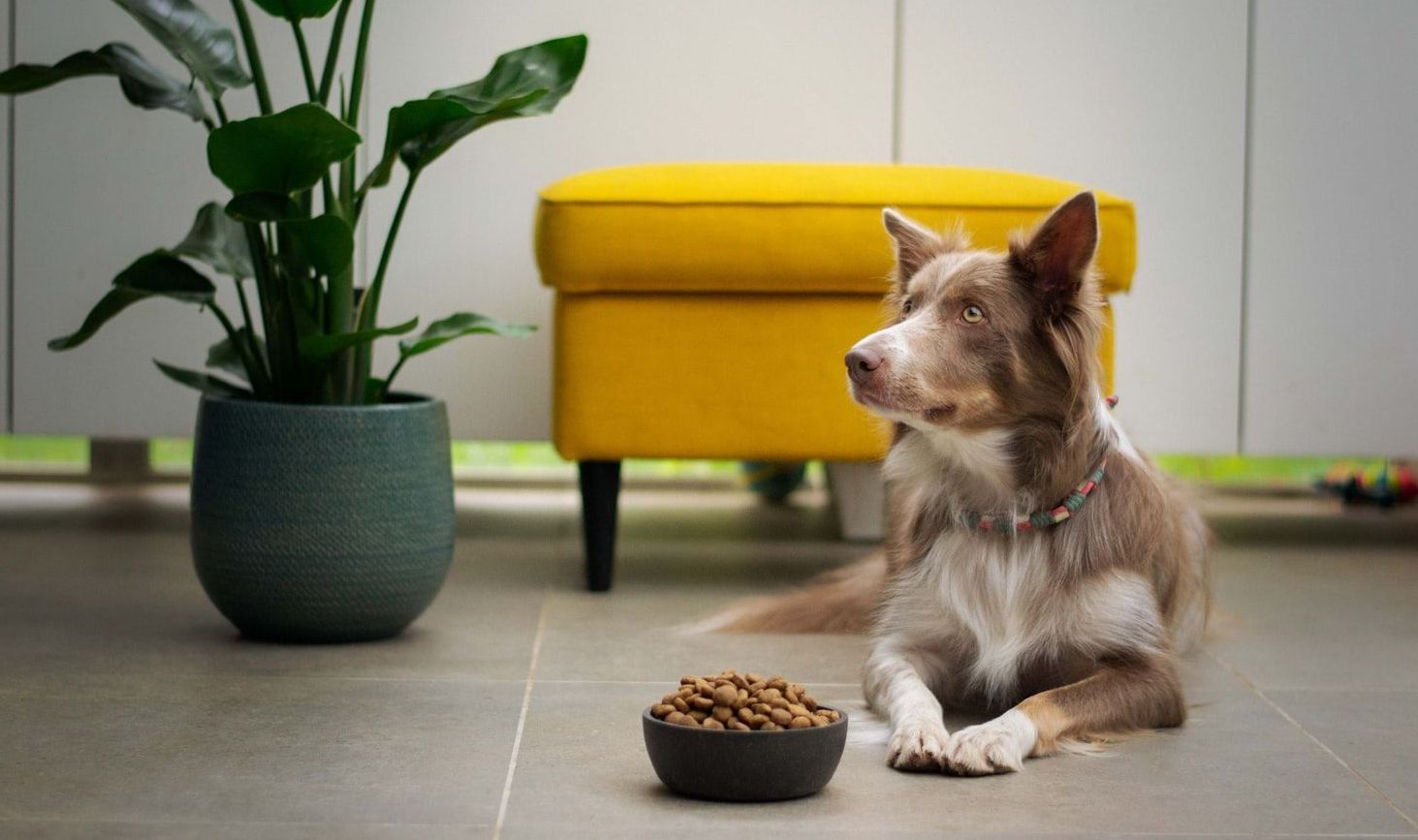8 nutrition tips to show your pets the love

Food is love. When we love someone, we cook them dinner. When our friends are sick, we make them chicken soup. When our kids are feeling down, we cheer them up with ice cream or a sweet treat. So it’s understandable that we apply our feelings about food to our fur babies as well. But picking up a 30lb bag of food doesn’t always feel like we’re giving them the best somehow. So we often head off in search of something better.
The problem is that this kind of thinking leads us to overthink and overindulge, which may not be the best thing for our pets. In fact, some human comfort foods can be dangerous for pets. In this article, we take a look at some great nutrition tips for pets. Believe it or not, keeping it simple is your best bet.
Keep it simple
First and foremost, clinical veterinarian, Dr. Jo Myers says, “Pet parents would do well to keep it simple…. The greater the effort you put into trying to feed your pet in a way that is somehow the ‘best’, no matter how exotic, expensive, or difficult to get it is, the more likely it is you will actually make your pet sick as a result.”
Myers goes on to say, “With only a few exceptions, a pet being fed cheap store-brand food is not likely to develop a nutritional illness. Exotic and boutique diets are far more likely to not be nutritionally complete and [can be] associated with medical issues.”
Home-cooked is not best
Another mistake pet parents tend to make is thinking that home-cooked food is better for their pets. Surely they can provide a healthier meal than mass-produced kibble from a grocery store — well, not always. There's plenty of research and evidence to suggest that homemade pet meals often end up being nutritionally imbalanced despite their humans' best intentions.
Dr. Myers urges pet parents to "remember that dogs have canine nutritional needs and cats have feline nutritional needs. That means that what might be best for you as a human might not be best for them. They need to eat like dogs and cats, not people. It doesn't mean you love your pet more if you feed it like a human. Instead, it means you're likely to make it sick."
Age is just a number … you should think about
Just as you wouldn’t feed a new baby the same meal you’re having, the same goes for your pets. Puppies and kittens have different nutritional needs than adult pets. And to take it one step further, senior pets have different nutritional needs than adult pets.
Puppies and kittens are high-energy, so their food should be formulated accordingly. According to the Canadian Kennel Club, puppies and kittens need a diet that’s higher in calories, protein, and fatty acids.
Similarly, the diets of adult and senior dogs and cats should be formulated to address their specific nutritional needs, like those associated with joint degeneration, heart disease, and obesity. Senior pets should eat food that contains high-quality protein (to prevent further losses in muscle mass, protein as well as foods that are low in fat, and easily digestible.
Size matters
While your pet's age plays an important role in their nutrition, so too does their size. This one’s more about dogs than cats. Large-breed dogs and puppies have different nutritional requirements than small breed dogs and puppies, so when you’re making dietary decisions for them, be sure to keep that in mind and always check the label.
Stay away from fad diets
While the internet might beg to differ, Dr. Myers warns that fad diets and whatever is “trending” is probably not good for your pet. Parents should avoid falling for common traps like gluten-free, vegan, organic, and natural.
Dr. Myers says, “the only reason a pet parent should attempt to feed their dog a gluten-free diet would be if it is medically necessary, based on a diagnosis provided by a veterinarian. While very rare, celiac disease (gluten-sensitive enteropathy) does exist in dogs but has not been reported in cats. But a gluten-free diet is not recommended or necessary for healthy pets, nor is it going to somehow optimize a pet’s health or be superior to a traditional diet.”
Treats have calories, too
Myers noted that obesity is the most common medical issue for pets. So, while handing out treats throughout the day is fun for everyone, it may not be the healthiest thing for your pets in the long run — after all, treats have calories too. Ideally, treats should only make up 10% of your pet’s daily calories.
Sharing isn’t caring
Food is magnificent. And when we’re eating something delicious, it’s only natural to want to share with the people and pets you love the most. Unfortunately, though, there are plenty of human foods that are toxic to pets. For example, chocolate, caffeine, grapes, raisins, onions, and garlic are toxic to both dogs and cats. In large amounts, some of these can be fatal. So, try to resist the urge to share your food and table scraps with your pets.
Every pet is unique
In addition to considerations such as age and size, it’s important to remember that every pet is unique. For that reason, diet and nutrition are not always a one-size-fits-all kind of deal. Pet food has come a long way. Just check out the loaded shelves at any pet shop.
Not only will you find breed-specific foods for your dog or cat, but you’ll also find food options that get even more specific. For example, there are plenty of options for indoor and outdoor cats, as well as diets specifically formulated for cats who have been spayed or neutered. If that weren’t plenty, pet parents will also find food formulated to help support urinary and gastrointestinal care.
If you’re unclear about your pet’s dietary needs, your vet would be an excellent place to start, bringing us to our last point.
Talk to your vet
Instead of helping pet parents, the overabundance of information and online trends only muddy the water for most. Dr. Myers says, “Pet parents are making their decisions about what constitutes the best food based on marketing trends, misinformation, and bad science, and subsequently, end up failing to meet their pet’s nutritional needs.”
Undoubtedly, there’s a lot to sort through and a lot to consider. So, if you’ve done your research but you’re not sure how best to feed new puppies, kittens, or an aging pet, it’s probably wise to speak with your vet.
The virtual veterinarians at Vetster are available anytime, day or night, to answer your questions.



